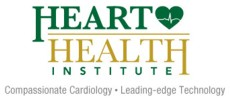Heart Failure
Heart health is one of the most important characteristics of a healthy body. Your heart works enormously hard to ensure your longevity, and will beat billions of times over the course of an average life. In short, it works to keep you alive, so you should work to keep it alive!
Being aware of any warning signs that could signal a heart problem is one way you can do that, along with exercising and eating well. So, here are seven signs that you should look for that could indicate you are at risk of heart failure. But remember, one of these signs alone may not be cause for alarm, but could be. Check with your doctor if you are experiencing any of these symptoms on a regular basis.
1) Fatigue
Everyone experiences tiredness, however, if yours lasts all day and you have difficulty completing everyday tasks, it could be a sign that your heart isn’t pumping enough blood to meet the needs of your tissues.
2) Increased Heart Rate
This one is a more obvious indicator. If your resting heart feels like it’s racing, it may be trying to make up for lost pumps.
3) Excess fluid buildup
If you have swelling in your feet, ankles, abdomen or other areas, it may be a sign that your blood flow is impaired.
4) Shortness of breath
If you have difficulty catching your breath while doing regular activity or even just resting, for example while asleep, this could be a sign that your heart can’t keep up with the supply of blood it needs to pump through itself. If your breathlessness wakes you up at night, that’s a particularly troubling sign.
5) Nausea
If you constantly feel full to the point of being sick, it could indicate a digestive problem that’s rooted in a lack of blood supply, indicating a heart problem.
6) Confusion
If you find yourself forgetting things or you feel disoriented, this could indicate a varied level of substances in the blood, which could indicate heart failure.
7) An ongoing cough
A cough that produces bloody mucus could indicate a buildup of fluid in the lungs, which could indicate heart failure.
All of these symptoms, when taken alone, are cause to see the doctor, and could be caused by non-cardiac related problems. However if you feel you experience a few of these together, or one in a particularly severe way, it may indicate something serious related to your heart’s health.
So make sure to ask your physician to refer you to a cardiologist at Heart Health Institute if any of these signs look familiar.
